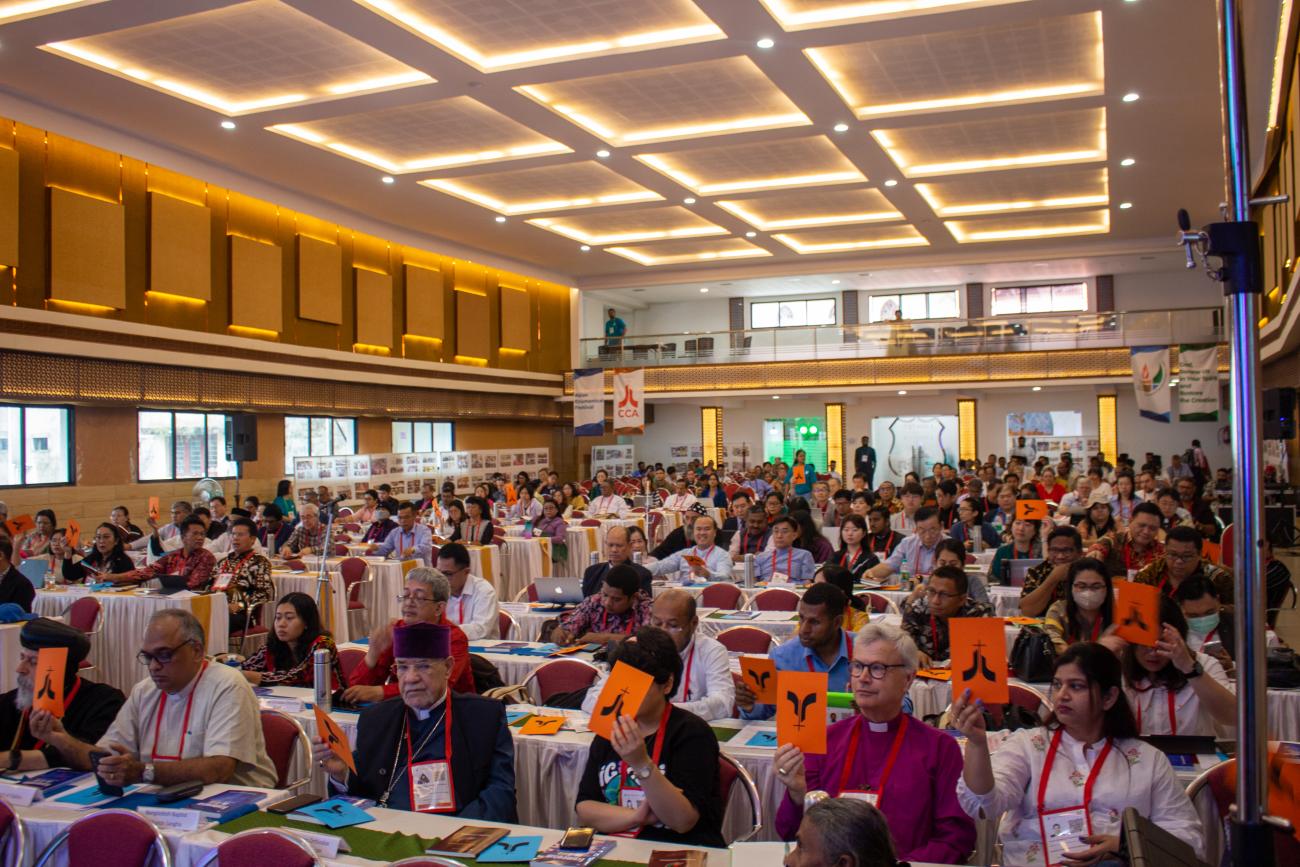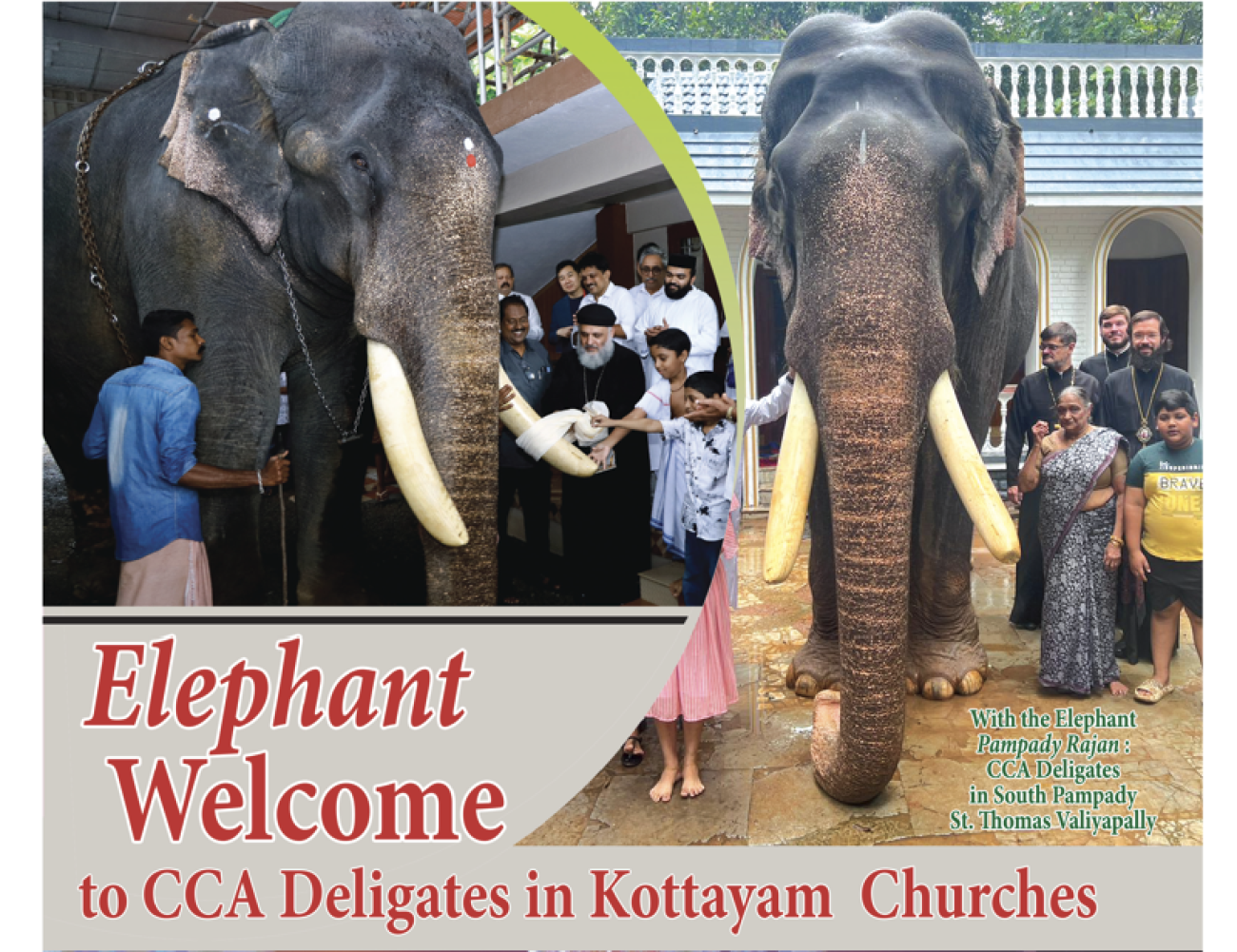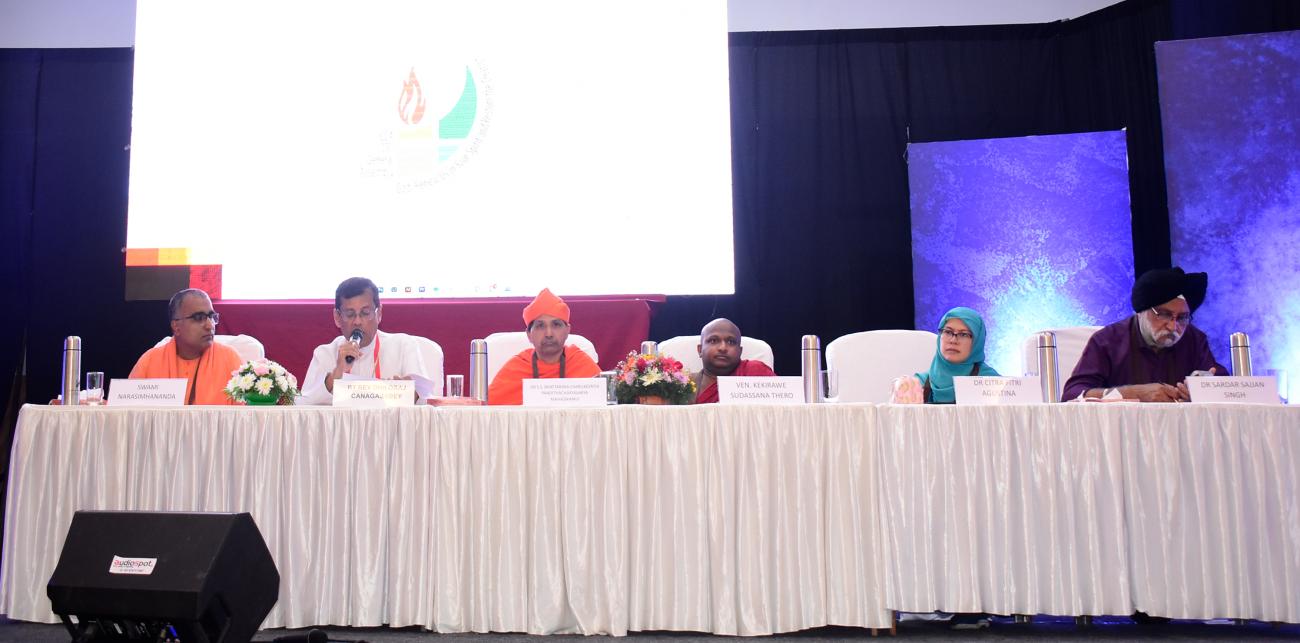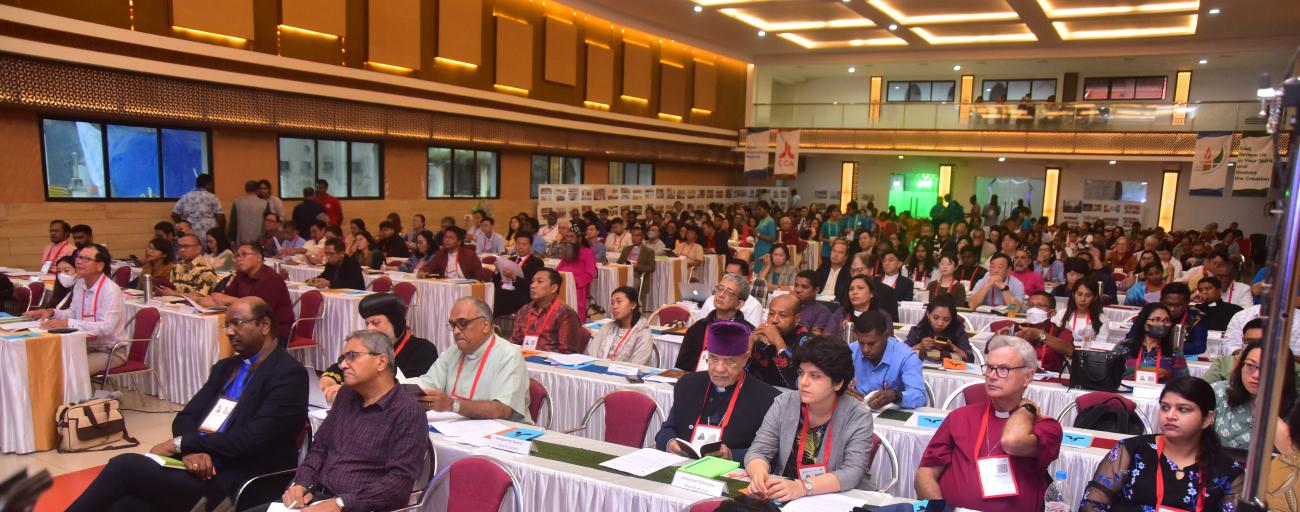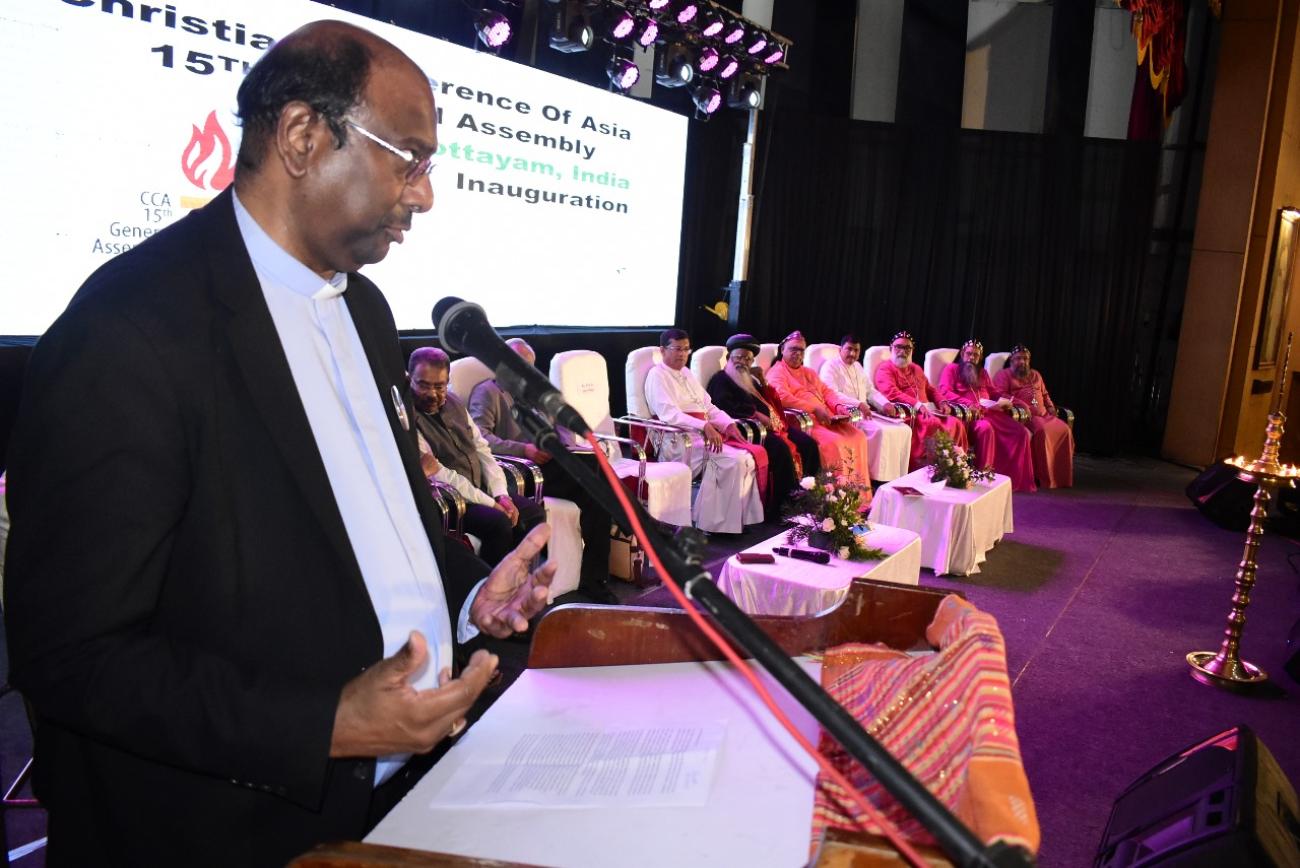Coordination of ecumenical Diakonia mission of Asian churches and strengthening of solidarity support proposed at WCC-CCA regional consultation
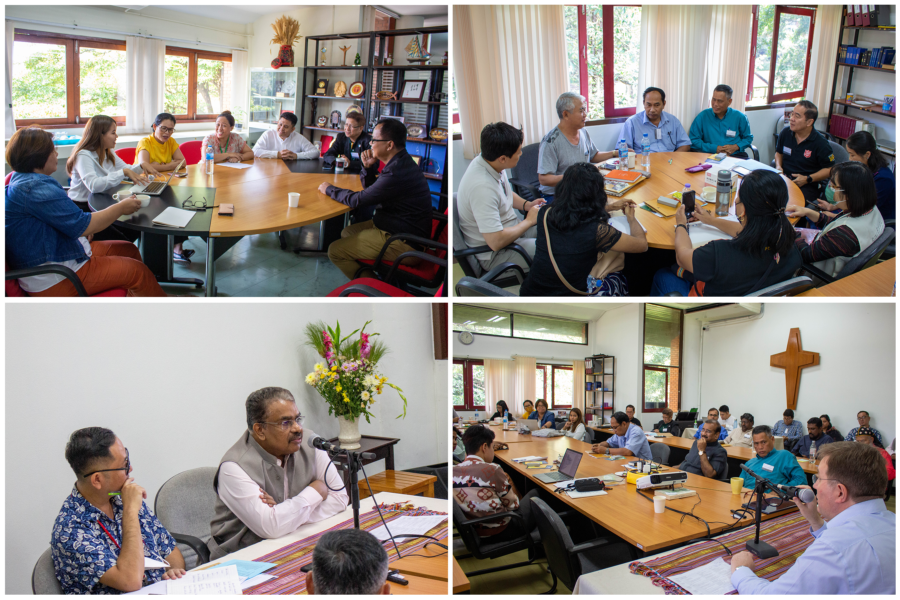 Participants share key insights during small group discussions at Asia Regional Consultation on 'Ecumenical Diakonia, Church's Response to Sustainable Development Goals (SDGs) in Asia'
Participants share key insights during small group discussions at Asia Regional Consultation on 'Ecumenical Diakonia, Church's Response to Sustainable Development Goals (SDGs) in Asia'
Representatives of the church and ecumenical organisations who attended the three-day Asia Regional Consultation on 'Ecumenical Diakonia, the Church's Response to the Sustainable Development Goals (SDGs) in Asia', proposed the need for effective coordination of Asian churches’ ongoing Diaconal mission and strengthening of mutual support and solidarity among Asian churches.
The participants suggested that the Christian Conference of Asia (CCA) and the World Council of Churches (WCC) organise national and regional capacity-building training programmes for churches and ecumenical organisations in Asia on a regular basis.
The consultation also proposed an ecumenical network of Diaconal missions across Asia and a platform for sharing information and emerging concerns among the Asian churches as well as generating local resources. The participants also proposed that a platform be set up for the exchange of learning which could be replicated at national levels, and pointed out that concerted efforts could help enhance churches’ participation in achieving the SDGs.
Rev. Saut Horas Nababan of the Batak Protestant Christian Church (HKBP) in Indonesia spoke about the importance of collaboration and network building, particularly among Asian churches and ecumenical organisations.
He went on to say that the HKBP Diakonia department works openly with the government, civil society organisations, the education sector, and a variety of other organisations, which is advancing the church's Diaconal mission.
Rev. Joshuva Peter of the United Evangelical Lutheran Church in India mentioned the Stewardship and Accountability and Transparency (SAT) Policy, a mechanism used in his own church to ensure resource mobilisation efficiency.
Several participants shared perspectives on the issue of mismanagement of church properties, which causes the shrinking of resources over time.
Recalling the sharing of experiences and achievements of the Diaconal mission of several Asian churches during the consultation, the CCA General Secretary, Dr Mathews George Chunakara, reminded the participants that Asian churches have experiences in following best practices of their successful engagement in Diakonia from the grassroots to national levels, and even in their Diaconal engagement at the international levels as those were shared by some Asian churches. These examples are clear evidence of the potential, capacity, and commitment of Asian churches to mobilise resources within each country in Asia. As this positive sign of increasing commitment to self-reliance and sustainability is encouraging, we need to find ways of strengthening the Asian ecumenical mission of Diakonia; at the same time, we should be mindful of sharing resources with better stewardship, accountability, and transparency as well as good governance in implementing projects and programmes.
There is a strong call for churches to practice strict accountability, particularly regarding the proper management of financial and property resources, and to find innovative ways to move toward self-sustainability and self-reliance in their pursuit of diaconal ministry programmes.
Asian church representatives who attended the consultation strongly affirmed the view that revisiting the church's teachings on stewardship, charity, and resource development will serve as the foundation for this work of accountability and transparency.
Participants, on the other hand, proposed that identifying human resources and enhancing their capacities in local churches and ecumenical organisations would help scale up Diaconal ministry work in various Asian churches.
Participants strongly recommended mapping human resources and mobilising local churches as Diaconal ministry prime movers. It was also stated that collaboration and cooperation would maximise resources and close gaps among churches and local ecumenical organisations best suited to carry out programmes such as disaster risk reduction and psychosocial support in disaster and conflict-affected communities in Asia.
Finally, the participants suggested to the CCA to keep the focus of Asia Sunday in future on the Diaconal ministry of churches and ecumenical organisations throughout the region.
Rev. Matthew Ross of the World Council of Churches affirmed the commitment of the WCC to enhancing the capacities of churches in ecumenical Diakonia.
"Let us work together for the glory of God and the betterment of people everywhere," Rev. Matthew Ross of the WCC said at the end of the three-day consultation.
Dr Ronald Lalthanmawia outlined the plan of action suggested for strengthening capacity building in the Diaconal ministry of CCA member churches through two regional programmes next year.
The Consultation on 'Ecumenical Diakonia, Church's Response to Sustainable Development Goals (SDGs) in Asia' was organised by the CCA and WCC from 24–26 October 2022 at the CCA headquarters in Chiang Mai, Thailand.


